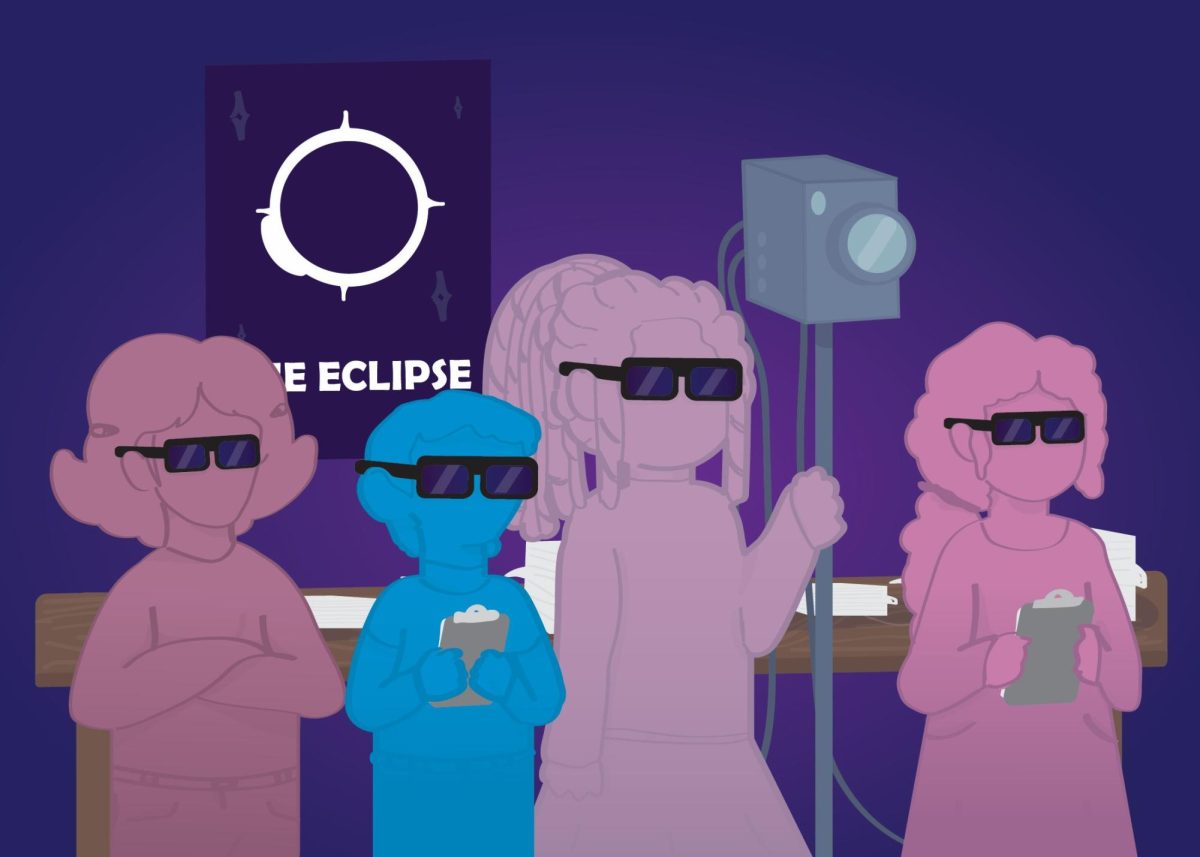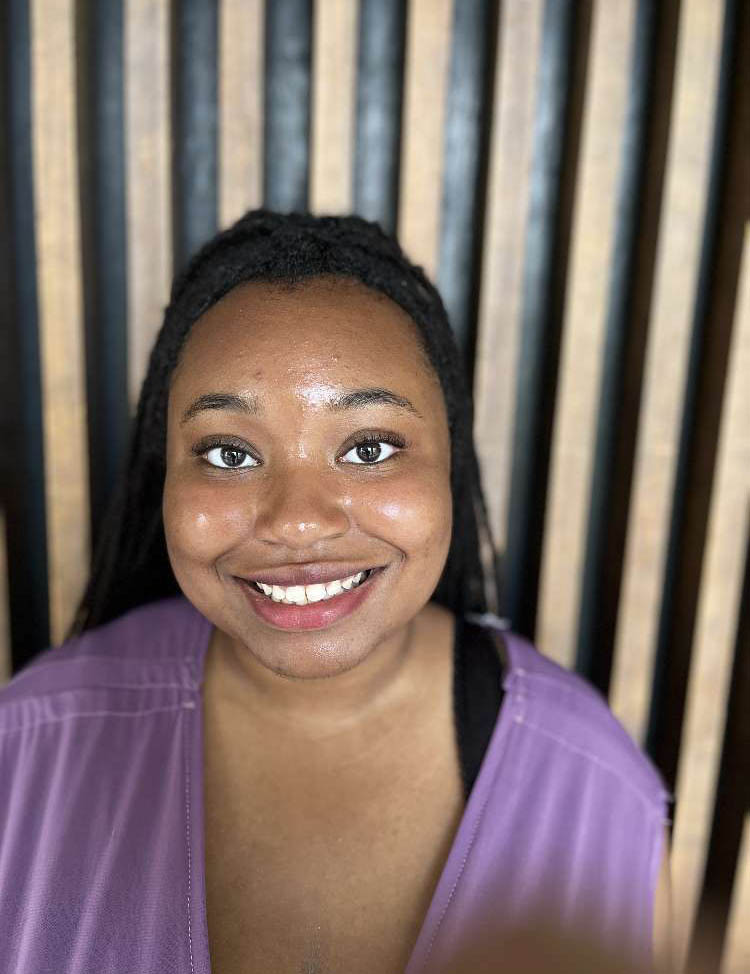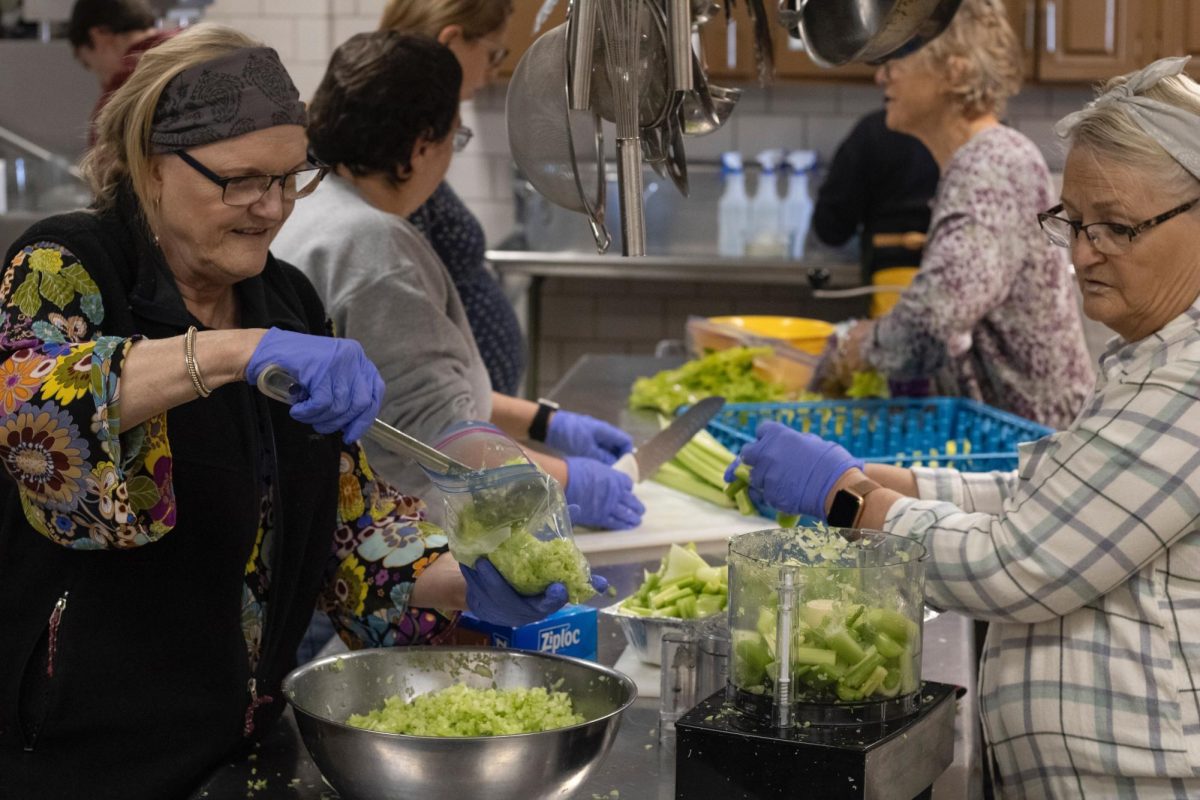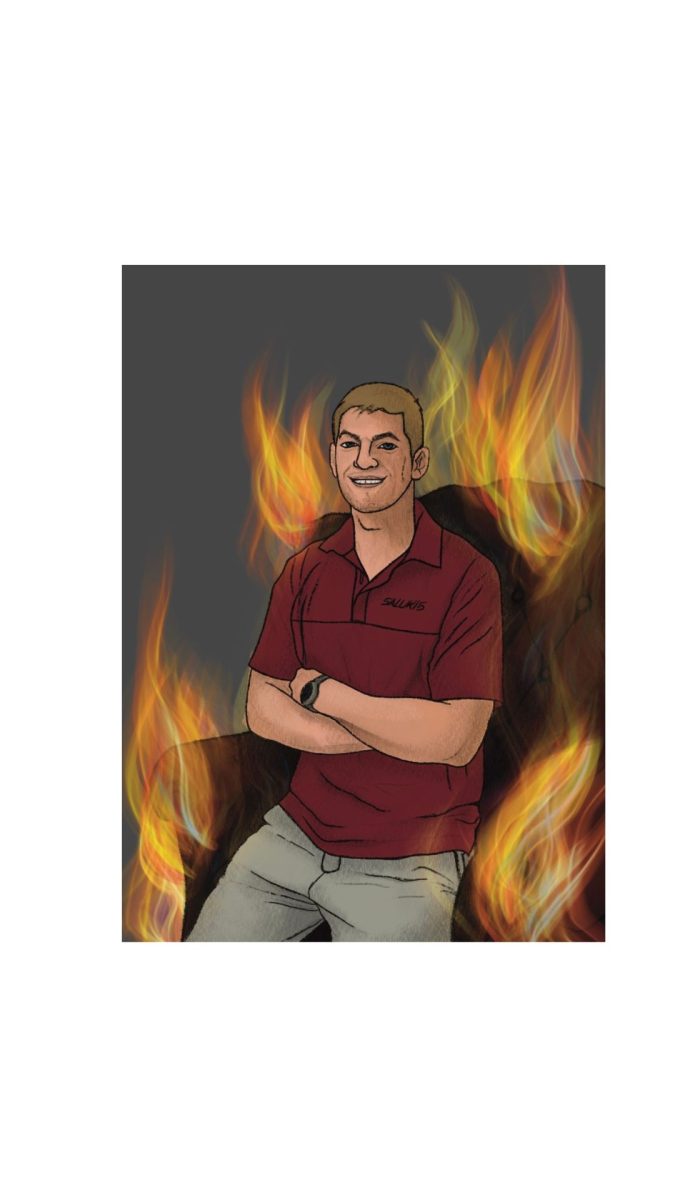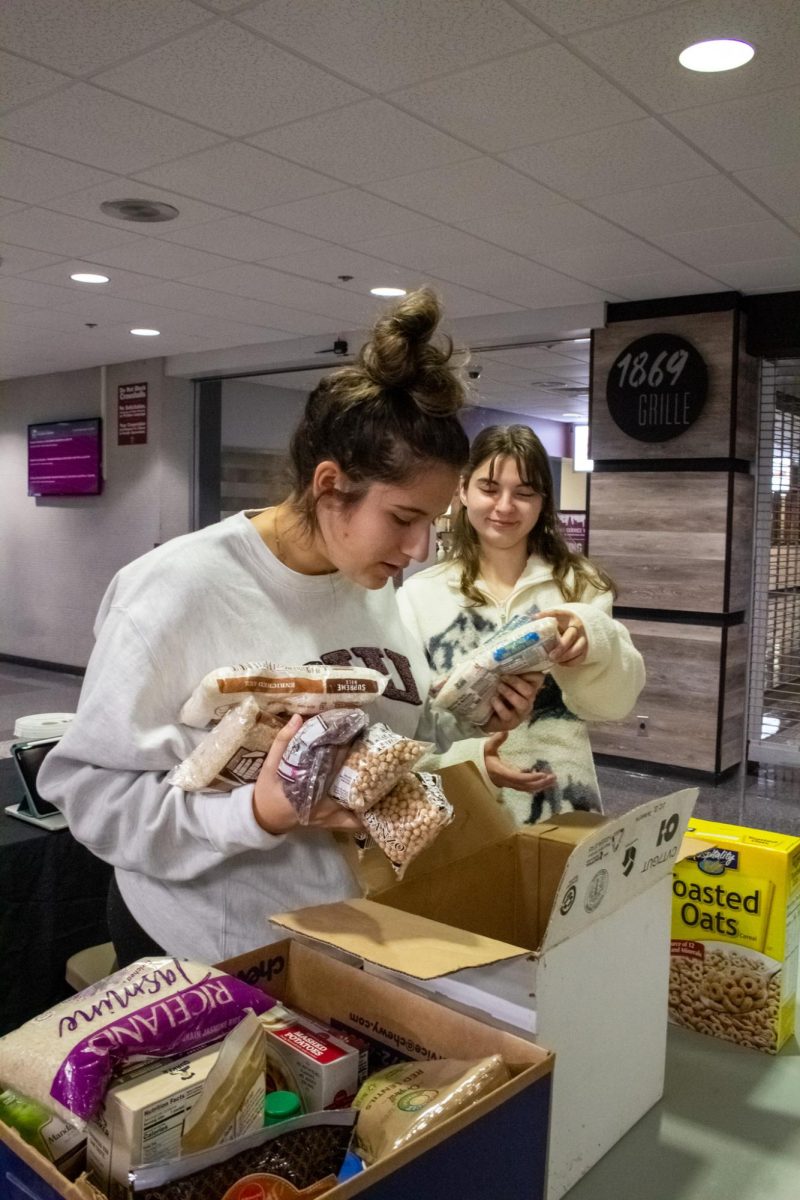The Southern Illinois Crossroads Eclipse Festival is less than four months away. Carbondale Public Library held an educational program on Jan. 16 to discuss the Dynamic Eclipse Broadcast (DEB) Initiative, a nationwide NASA project led by Southern Illinois University. “They [total solar eclipses] do not happen very often, and you’ll notice you’ve gotta be in exactly the right spot. Southern Illinois is the magic right spot,” Dr. Corinne Brevik said. “We are exactly on the path of both the 2017 and 2024 eclipse, and that’s very rare and it’s very exciting.”
Brevik is a member of the SIU School of Physics, part of the steering committee for the eclipse planning efforts at SIU and team coordinator for the DEB Initiative.
According to its website, the DEB Initiative “creates a North American network of volunteer citizen scientist solar observation teams.” These teams “conduct coordinated solar observations” prior to the eclipse and will “web broadcast images from observing sites in near real-time.” Brevik described the initiative as “80 telescopes spread across the whole U.S. that are going to be providing feeds that [will be used] for both science and to share with [the public].”Brevik discussed Citizen CATE, a similar science project conducted in 2017.
Advertisement
“In 2017, the eclipse went from Oregon to South Carolina, and in that case, we had a project called Citizen CATE…Anytime you do a citizen science experiment, you get a bunch of volunteers from, in this case, across the country,” she said. “They are not necessarily professional astronomers…They come from a variety of backgrounds. Some of them are people who have never used telescopes before but they want to get involved, and we teach them how to use the equipment.”
That project consisted of 70 telescopes spread across the path of the eclipse, she said. Citizen CATE’s goal was to image the inner corona, which is the atmosphere of the sun.
“We’re trying to image parts of the sun that are hard to see,” she said. “Normally when you look at the sun, you see the surface, what we call the photosphere, but you don’t see the corona. So eclipses give us this unique opportunity.”
Brevik described the experiment as “amazing” and “highly successful.”
“We had fantastic teams that collected a lot of images. [The teams] were able to take that data they collected and…publish in scientific journals,” she said. “There were several articles that came out of it. So not only is this an amazing experience to learn how to use a telescope and image the eclipse, but these teams are collecting science-quality data, which is absolutely fantastic.”
Brevik noted that the new DEB project is using the success of Citizen CATE to its benefit.
“Citizen CATE [was] highly successful,” she said. “Here comes 2024, and if you did it once, why would you not do it again? But you don’t want to do the same thing again, right? You gotta do something more.”
Advertisement*
The DEB Initiative has already exceeded some of its goals, Brevik said.
“Our goal this time was to have seventy or more teams, and I think we’re up to almost eighty teams at the moment,” she said.
The teams consist of new and experienced members.
“Just like in 2017, these are volunteer citizen science groups,” Brevik said. “We have middle schools, we have high schools, we have college teams, we have amateur astronomy teams, and then we have some teams who have never done this before. This is their first telescope ever, and they’re learning how to use it.”
Brevik said that twenty of the groups are made up of all women.
“They come from 4-H, Girl Scouts, FFA, Boys and Girls’ club, a whole bunch of teams that are doing this for the first time, so that’s super fun and exciting,” she said.
All 80 teams are using the same type of telescope. While some elected to buy their own materials, the DEB Initiative received grants from NASA and the National Science Foundation, allowing them to provide groups with equipment, which they will get to keep for future projects.
“If a team is really excited and they want to do more and they want to learn more, these telescopes are pretty high quality, so we will actually be able to use them to look for planets around other stars,” Brevik said. “We’ll also be able to look at stars that change their brightness…using these telescopes. If teams are interested, they can look at climate changes that affect the atmosphere, lunar eclipses and we can study changes in the earth’s shadow as it moves across the lunar eclipse. So there’s all sorts of follow-on projects that a team can do.”
The total solar eclipse will take place on Monday, April 8. There will be numerous festivities in Carbondale leading up to the event, starting on Saturday, April 6. “Most of it is free, and it’s open to the public,” Brevik said. “People are welcome to come and go as they want.”
Events include a Comic-Con on Saturday, astronomy, science and technology expo on Sunday and Monday and an arts and crafts fair on Sunday and Monday. Eclipse Day and the Comic-Con are the only events that require tickets. Those attending Eclipse Day at Saluki Stadium will be provided glasses, and entrance is free for SIU students.
Adler Planetarium, NASA and NASA Edge will be in attendance for the guided eclipse viewing.
“This Eclipse Day in Saluki Stadium is not three hours of sitting and just watching the sun,” Brevik said. “Instead it’s gonna be highly interactive. [There will be] lots of interviews. We’ll be pulling those telescope feeds, so we’ll be able to [see] the eclipse happening in Mexico, crossing into the U.S…We’ll be able to track it, which also means we’ll be good to go regardless of the weather…We have a great backup plan because even if we don’t get to see the eclipse, we’re gonna be pulling in live feeds. There’s no way the whole country can be cloudy, so we’ll have good views.”
All information about the Eclipse on SIU’s campus is available online. Brevik said that hundreds of volunteers are needed for the event, and anyone is welcome to get involved. A volunteer sheet will be posted within the next couple of weeks, she said, but if interested in helping with the telescope viewing, send her an email at [email protected]. She also encouraged all registered student organizations to come up with activities for the weekend.
The webinar was hosted by the Carbondale Branch American Association of University Women (AAUW). The national organization was established in 1881 and is open to anyone with an associates degree or higher, regardless of gender.
“For over 140 years, AAUW has been a leading voice, promoting equity and education for women and girls,” Membership Vice-President Martha Ellert said.
Today, the organization works to publish research reports, support the academic achievements of scholars, and advocate for laws such as the Title IX Amendment and the Family and Medical Leave Act.
“Our Carbondale branch was founded in 1927,” Ellert continued. “Our ways of doing things have certainly changed and evolved through the intervening almost hundred years, but our core mission has been the same: to advance gender equity for women and girls. We host monthly programs, like this one, from September through May, and anyone is welcome to attend any of our programs.”
Ellert also said that the Carbondale branch works to achieve its mission by awarding scholarships to women students at SIU, and it encourages those with similar goals and values to join. Those who are interested can reach out through the Carbondale Branch AAUW Facebook page or email [email protected].
Staff reporter Carly Gist can be reached at [email protected]
Photo editor:- Yarauseth Zavala
Advertisement



